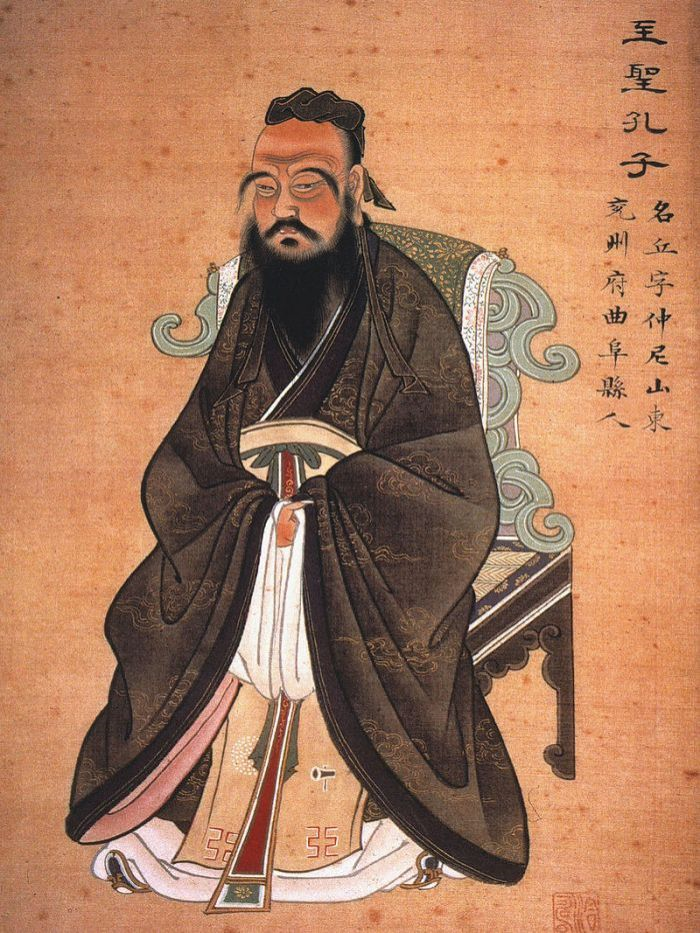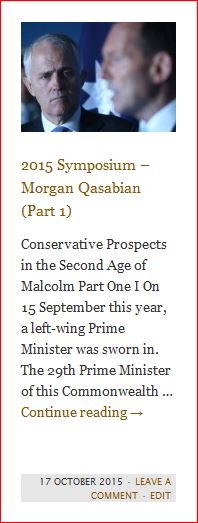Dissolving the Black Hole of Modernity
What should traditionalists do about the situation in which we find ourselves? The problems go deep, and our response must be determined by the nature of the situation. Ill-informed practice either goes nowhere or defeats its purpose.
I
The Current Situation
Our political and social situation is an expression of modernity. “Modernity” is not just a matter of what year it is but has substantive content. From a philosophical perspective, it is rejection of formal and final causation, and one-sided emphasis on material and efficient causation. That means that essences and teleology are out—you can no longer ask the nature of man or what he is for. Instead, we must accept the mechanistic world of modern physics: atoms and the void, wave functions in space, or whatever the current description might be.
In that world value is purely subjective, and knowledge—when not deconstructed as illusion or ideological assertion—is identified with modern natural science. So man is simply a physical process, the good a matter of what particular men happen to want.
In its practical form, when it actually tries to run things and therefore tries to take knowledge and reality seriously, political modernity is technocratic. It aims to bring the world of modern physics and the world of subjective feeling together by turning the social world into a universal rational machine for maximizing preference satisfaction.
That has meant an ever-growing emphasis on efficacy and uniformity—in moral language, utility and equality—at the expense of objective conceptions of the good and respect for the natural, historical, and evolved. That tendency has led to the rise of the modern state, modern capitalism, modern industry, and modern science and technology.
Today it means the growing integration of those things into a single global order. In that order, foreshadowed by the European Union, humanity is to become grist for the globalist mill, an aggregate of clients, consumers, and employees ordered by world markets and transnational bureaucracies oriented toward efficiency, prosperity, stability, and—to a debatable extent—equality.

James Kalb, “The Tyranny of Liberalism – Understanding and Overcoming Administered Freedom, Inquisitorial Tolerance, and Equality by Command” (ISI Books, 2008)
Rhetorically, the world order now under construction appeals to freedom, equality, prosperity, and security. If people let the experts run everything, and support all their determinations, everyone will supposedly get those things. Since the approach promises such great benefits, and is thought to define the only rational political order, to oppose it means ignorance, irrationality, oppression, poverty, and war.
Whatever stands in its way must therefore be destroyed. In particular, alternative sources of social order, such as family, religion, and inherited community, must be gotten rid of and the principles and distinctions on which they depend must be suppressed. After all, social arrangements involve roles, boundaries, and hierarchies, which interfere with freedom, equality, tolerance, and inclusion. Unless they have clear rational justifications—which natural, traditional, and informal social arrangements are thought to lack—they are therefore judged hateful and oppressive.
The means of suppression include propaganda, anti-discrimination laws, deprivation of functionality through extension of state social services, and co-option of prospective opposition leaders through the educational system and the prizes offered the successful. Distraction by electronic entertainment also plays a role, along with the disintegration of reality through the Internet and mass media into a mass of images and sound bites that can be selected and assembled into anything at all.
The result of all these tendencies is that people become disconnected from reality and less able to do things on their own or through informal cooperative arrangements. All social functioning therefore gravitates toward markets and bureaucracies that grow increasingly international. Inherited community is reduced to ethnic cuisine, ordinary activities are thought to require special training and expertise, families lose stability, definition, and function, and religion becomes a matter of arbitrary private preference, or assimilates to a poeticized version of the system’s own ideals.
Under such circumstances opposition is very difficult to organize. It goes against the current, fails to grasp the depth and breadth of the problem, and finds it difficult to maintain coherence and continuity. That is why the Right, the general name for resistance to progressive modernity, has failed in all its forms. Most recently it has taken a crude populist form that seems no more likely to succeed than movements of the past.
II
Outlook

James Kalb, “Against Inclusiveness – How the Diversity Regime is Flattening America and the West and What to do About It” (Angelico Press, 2013)
In spite of its power and the absence of effective opposition, the world of progressive modernity cannot go on forever. Its philosophical basis is grossly inadequate, since you cannot have science without common sense, or a system of ethics people will take seriously without higher goods rooted in the nature of things. And the social machine it hopes to create cannot function apart from mutual trust and public spirit it cannot provide but rather progressively destroys. So it continuously erodes the ground on which it stands.
That is why we see around us the multiplication of ever grosser irrationalities. Many of these have to do with the constant scaling up of egalitarian demands, which require willed denial of obvious realities. Thus, we have the multiplication of “genders,” the absolutism of transgenderist demands, open borders as an emerging human right, insistence that human populations are indistinguishable, compulsory celebration of diversity as an unquestionable universal good, and the public propagation by respected voices of vicious fantasies blaming all the world’s problems on sexually normal white Christian men.
Lunacy has a price that must eventually be paid, so progressivism will not end well. Even so, retreat seems impossible, since modernity is too narrow and rigid to change its dynamic. So it continuously radicalizes, and feels obligated to destroy all traditional and informal distinctions and arrangements. They have no legitimate function, or so it believes, and so are purely oppressive. It follows that once an advance is made on the road to equality there is never an excuse for retracing it, and every step reveals deeper inequalities that must urgently be addressed.
III
Our Response
Since the Right is rejection of political modernity, it will triumph in some form upon the self-destruction of the latter. But how much damage will be done before that happens? And what will succeed our current public order? Communism was followed in the Balkans and Caucausus, regions noted for multicultural diversity, by bloody chaos. The current system shows an impressive ability to manage the small-scale social chaos it creates, but the longer it is able to do so the more catastrophic the situation will be when it finally gives way.
In spite of its record of failure the Right must therefore continue to look for ways to redirect the tendency of events and head off extremities. And if such efforts continue to fail we must do what we can to prepare for the final collapse, maintain some decency and rationality in the interim, and reduce the stupidity and brutality of what comes afterward.

Confucius
But how? Politics is primarily about institutions. From that perspective, the strength of progressive modernity is that it divides and weakens all institutions other than global markets and transnational bureaucracies. We need to weaken and resist that tendency, and more importantly strengthen alternative institutions and sources of social order.
During the Warring States period in China, Confucius thought deeply about the problem of fundamental reform in bad times. He concluded that we need to start at the beginning, with what is closest to us, and tie our understandings to reality:
The ancients who wished to illustrate illustrious virtue throughout the kingdom, first ordered well their own states. Wishing to order well their states, they first regulated their families. Wishing to regulate their families, they first cultivated their persons. Wishing to cultivate their persons, they first rectified their hearts. Wishing to rectify their hearts, they first sought to be sincere in their thoughts. Wishing to be sincere in their thoughts, they first extended to the utmost their knowledge.1
I cannot think of a better approach. It seems, then, that we need to start by getting our lives in order at all levels, body, mind, and spirit, and develop our understanding of ourselves, our situation, and the world. Then we will have a chance to save ourselves and perhaps those close to us even if no one else.
IV
Personal Life
A discussion of basic political strategy should therefore include a pep talk about self-improvement:
1. We can start with things as simple as staying active and healthy. Physically weak men tend to be inert and politically progressive.
2. Beyond that, we need to clear our minds of cant. That’s becoming easier, in spite of all the propaganda, since official thought is becoming so ridiculous. Having done so, we need to educate ourselves in every direction by reading good books, listening to good music, watching old movies, developing our taste, and avoiding commercial pop culture. More generally, we need to learn how to do things—practical things like home repair and recreational ones like music—so that we become broadly competent in all departments of life.
3. If possible, we need to find ways of earning a living that do not involve lying. Intellectual independence is greatly aided by economic independence. So we can save, start our own businesses, learn trades and professions that can be practiced independently, and above all avoid servitude to ambition, consumer goods, and debt.
4. With that as a background, we can start and raise families.
In all these things what is important is to get started and keep at it. If you do not do everything do some things, and if you cannot do them perfectly do them as well as you can. Above all, when you fail try again. Intention and direction are everything.
V
Common Goods and Community
Self-help is obviously not enough. Politics is social, so it is carried on in community, and we also need to build community. But here we come to a basic issue, the most basic of all political issues, the need for higher goods held in common.
 A community is necessary for politics, and politics helps make it what it is, but it cannot be simply a political construction. The fascists tried to construct community by an act of will and found that political programs, pep talks, marches, athletic displays, and invented myths, rituals, and symbols weren’t enough. They needed an orientation toward something that transcends everyday life, and they didn’t have anything, so they appealed to irrational activism.
A community is necessary for politics, and politics helps make it what it is, but it cannot be simply a political construction. The fascists tried to construct community by an act of will and found that political programs, pep talks, marches, athletic displays, and invented myths, rituals, and symbols weren’t enough. They needed an orientation toward something that transcends everyday life, and they didn’t have anything, so they appealed to irrational activism.
That led them to view war as man’s highest state, since at the natural level war is the most incontestably serious human activity. Such an approach cannot work very long. A society that takes it seriously soon crashes and burns, but if the appeal is simply rhetorical people grow tired of it. It has no connection to genuine higher goods, so the sound and fury come to seem pointless, and it destroys itself through corruption, boredom, and loss of adherents.
So we need a sustaining vision of goods pursued in common. But what? In theory natural human goods understood simply as such might serve, but those goods must be made definite in accordance with a particular tradition. Some have suggested the Western tradition as a standard, but the actual development of that tradition has led to the situation in which we now find ourselves. An historical tradition includes a great many things, and without something higher toward which it is oriented it might be thought to point almost anywhere.
VI
Religion
That means we need religion, or at least something that functions as such. Without an understanding of human nature, the world, and the particular tradition of which we are part that ties social goals and traditions to the structure of reality and thus turns them into objective standards, there is no reason to interpret a tradition one way rather than another, or to take allegiance to a particular society, political regime, or civilization seriously. We might prefer this interpretation or that, or recognize allegiance as socially beneficial, but why not bail out when there’s a serious personal cost? Also, the current public order is based on a particular understanding of reality. To overcome it we need another that is more adequate to human nature and the world and is capable of inspiring an overriding allegiance. That again means religion.
 So it seems that building a better society that overcomes progressive modernity requires religion. More particularly, what’s needed is a religion that connects the past and present, makes sense of universals as well as particulars, has a place for both freedom and authority, supports the active as well as contemplative life, and has a integrated vision of reality and structure of authority sufficient to keep its various tendencies in balance in the long run.
So it seems that building a better society that overcomes progressive modernity requires religion. More particularly, what’s needed is a religion that connects the past and present, makes sense of universals as well as particulars, has a place for both freedom and authority, supports the active as well as contemplative life, and has a integrated vision of reality and structure of authority sufficient to keep its various tendencies in balance in the long run.
What’s needed, then, is a religion that is historical, incarnational, moral as well as metaphysical, concerned with individual choice as well as communal obligations, takes truth seriously, and has something like a pope. Catholicism seems the obvious choice. It is certainly the obvious choice for European man: “the West” is simply Catholic Christendom 500 years farther on, so to return to our roots so that we can regroup and go forward in a more productive way is to return to the Church.
Today, of course, the Church is a mess. But so is everything else, so that cannot be a strong objection. In her favor, she has lasted a very long time, and survived a great many ups and downs, so it seems possible even today that she will return to type and become once again capable of joining and ordering a complex of particularities into a civilization.
But here we get to a paradox. As the book says, seek ye first the kingdom of God and all else will be added unto you. The order of concerns cannot be inverted. Religion works as a basis for social order only if it is accepted as true. A fundamental change in how the world is understood is needed to escape the black hole of modernity, and that change must be real. So we will get better politics only when we care about higher things more than we care about politics. Even when we talk about praxis we cannot put praxis first.
Nor should we look for impossibilities. But it is not impossible that Catholicism should once again attain a social position like that held today by human rights theory. This is not the place to discuss the point, but as a Catholic convert I believe the religion can be rationally defended, and is in fact the most rational way to understand man and the world around us. A change in the intellectual climate, which Catholics could promote in various ways if they pulled themselves together, could allow that inner strength to come to the fore and transform everything. As the present order and its intellectual basis falls apart, such possibilities will become more realistic.
Not everyone will agree, of course. But each can only present what he sees. Those who think they have a better proposal that suits human nature and goes deep enough to rescue us from our present situation should say what it is.
VII
Secular Politics
However these things may be, we can only do our best and go forward with whatever we have. None of us is going to do it all himself, and how everything turns out is not something we can determine. I will turn, then, to more specifically political issues and strategies.
VIII
Intellectual Agitation
The intellectual struggle is fundamental. The first step in bringing about change is to make people aware that the present orthodoxy has serious problems and alternatives are available. So we need to develop and present clear analyses of what has gone wrong and what would be better. The analyses should point out contradictions and insanities, debunk historical and journalistic myths—propaganda about the glories of liberation and black legends about the horrors of the past—and point out missed opportunities and models that have been ignored or misunderstood.
 Why, for example, accept that the changes that have given us our present world—loss of religious unity, rise of the modern state, rise of modern industry, rise of modern concepts of freedom, equality, and individuality, swapping Aristotle for Descartes and Bacon—are unequivocally good? At the time some of them may in some sense have been necessary or inevitable, but so at one time was slavery. Nothing works forever, and what was necessary then might be catastrophic now. To understand our present situation and think intelligently about the future we need to be aware of the cost of the historical choices that led us where we are, and we need to make others aware of those costs.
Why, for example, accept that the changes that have given us our present world—loss of religious unity, rise of the modern state, rise of modern industry, rise of modern concepts of freedom, equality, and individuality, swapping Aristotle for Descartes and Bacon—are unequivocally good? At the time some of them may in some sense have been necessary or inevitable, but so at one time was slavery. Nothing works forever, and what was necessary then might be catastrophic now. To understand our present situation and think intelligently about the future we need to be aware of the cost of the historical choices that led us where we are, and we need to make others aware of those costs.
More concretely, we need to keep pushing on weak points, for example the self-contradictions of a feminism that destroys femininity, an equality that radicalizes inequality, a diversity that insists on universal sameness, and present alternative ideals that deal with human concerns such as mutual respect and belonging in a more coherent way.
Much of the basic work has already been done, by a variety of good writers, but we need to continue the work and hammer away at the issues consistently, forcefully, uncompromisingly, and in every possible forum so that objections against established understandings and possible alternatives cannot be ignored.
Once that is done the discussion will broaden, and that can change everything. Progressive modernity stands on ever more shaky ground, because it denies human nature for the sake of demanding impossible transformations. That makes it vulnerable. PC demonstrates the need to silence obvious objections to current beliefs in order to preserve them. So why cooperate with it? We need to speak, as clearly and persuasively as we can, and never shut up, compromise, or expect our critics to be reasonable. What we say is not aimed at bigoted loudmouths who seem to be our interlocutors but those who are listening.
IX
Politics Strictly Speaking
In addition to the overall intellectual struggle there are of course concrete political issues on which action is needed.
The most basic is survival. We need to defend our right to speak what is true, and to live well individually and in community. So we need to defend parental and conscience rights against PC compulsion. These include the right of small businessmen to run their businesses in accordance with their religious and moral standards, the right of parents to educate their children at home or send them to genuinely independent schools, and the liberty of the Church, which includes her freedom to proclaim her message and run her own affairs in accordance with her ideas of what is proper.
 To some extent these rights can be defended on the basis of liberal freedom, but we need to remember we are fighting not for liberal freedom of arbitrary choice but for the right to live in accordance with what is right and true. What is good and normal and what is depraved should not be put on the same level as equal exercises of liberal autonomy. If they are, and there is a conflict, why should the former win? Recent events have shown that liberal freedom cannot even protect bakers from demands that they help celebrate gay marriages. So we always need to argue that the way we exercise our freedom is reasonable and justified, and put more emphasis on the right to do what is right.
To some extent these rights can be defended on the basis of liberal freedom, but we need to remember we are fighting not for liberal freedom of arbitrary choice but for the right to live in accordance with what is right and true. What is good and normal and what is depraved should not be put on the same level as equal exercises of liberal autonomy. If they are, and there is a conflict, why should the former win? Recent events have shown that liberal freedom cannot even protect bakers from demands that they help celebrate gay marriages. So we always need to argue that the way we exercise our freedom is reasonable and justified, and put more emphasis on the right to do what is right.
More generally, we need to fight for the survival of social arrangements other than global markets and transnational bureaucracies. So we need to promote devolution, support secession when relevant, and fight in every way possible for borders and against centralization and mass immigration.
The fight for non-bureaucratic and non-commercial social arrangements also means pressing the social issues. Without cohesive and functional families, communities, and religious institutions, culture dies and people have nothing to fall back on but money and the administrative state. So we need—among other things—vigorously to oppose current ideals of inclusion and non-discrimination, which do not apply to the attitudes and distinctions the liberal global order finds useful but only those that support and order non-liberal arrangements. You can take the university someone attended into account when dealing with him but not sex or cultural background. What sense does that make?
To take the social issues seriously thus means rejecting fundamental principles of mainstream respectability and so breaking with mainstream forms of conservatism and Christianity, which value respectability more than anything. That is hardly a surprise. When you want to oppose the basic direction of a society you cannot expect those who guide that society to think you are one of them. The solution is not to fudge your position but make its nature and justification clear.
X
Conclusion

James Kalb
Such, in very brief outline, is my proposed strategy. Its effect depends on future events that cannot be predicted or produced to order, but in difficult situations the most important step is to recognize that there is no sure or easy fix. We nonetheless have grounds for hope. What cannot go on will not go on, so political modernity will eventually disappear. Man remains man, and human nature will inevitably reassert itself and inspire people to cultivate rather than deny or attempt to eradicate it.
For that reason our task is to hasten and help influence the form of an inevitable transformation, and defend intelligence and civilization in the face of growing stupidity and brutality. That is an attractive project, and is likely to prove successful to some extent.
Nor do we lack allies. Modernity has created a situation in which particularisms that once conflicted are allied against a common enemy. French nationalism now favors German nationalism. And everyone is on our side to some extent. There are no robots, the greatest technocrat has a human side, and no one can be consistently modern. So from that point of view our task is simply to help people get in touch with what the implications of their thoughts and perceptions really are.
— James Kalb is an attorney and writer living in Brooklyn, New York. A Catholic convert, he has written on politics, culture, and religion for a number of publications in Europe and the United States. He is the author of two books, The Tyranny of Liberalism: Understanding and Overcoming Administered Freedom, Inquisitorial Tolerance, and Equality by Command (ISI, 2008), and Against Inclusiveness: How the Diversity Regime is Flattening America and the West and What to Do About It (Angelico Press, 2013). James Kalb’s last contribution to the Sydney Traditionalist Forum was to its First 2017 Symposium (“The Future of Western Identity: Problems and Possibilities, Obstacles and Opportunities”) titled “Identity and the Civilisation of the West.”
Endnote:
- Confucius, “The Doctrine of the Mean” §4 in James Legge (trans.) The Confucian Analects, the Great Learning & the Doctrine of the Mean (Cosimo, 2009) pp. 357-358.
Citation Style:
This article is to be cited according to the following convention:
James Kalb, “Dissolving the Black Hole of Modernity” SydneyTrads – Weblog of the Sydney Traditionalist Forum (24 December 2017) <sydneytrads.com/2017/12/24/symposium-ii-james-kalb> (accessed [date]).






Interesting, reading about Confucian teachings via a Christian post.
The author believes that the key to changing the State, is by first working on self.
But 2 questions:
1. “Wishing to regulate their families, they first cultivated their persons.” – OK, so say an individual got his life totally spot on. How is he gonna regulate his family to think as he does? We don’t live in Patriarchal times anymore. Mass media and social media has more control on our family’s lives.
2. “Wishing to order well their states, they first regulated their families.” – OK, say we somehow got our family values and ideals entirely in line with ours. If we’re still in the minority, what’s gonna change?
Besides, what’s the end game?
So… we just keep doing what we’re doing and wait??
I fail to see the end game of this article. Perhaps I’m missing something.
Otherwise the rest of the article makes great points. Especially the one regarding the need for alternative, non-economic institutions. I wonder how feasible would a Christian military Order be, in modern times.
As Protestant I fully welcome the notion of a Catholic government. Protestant States always screw up. We lack the ability to form consensus, and therefore lack the ability to govern. Or preferably Orthodox, Catholics won’t let me divorce my wife for adultery lolz
Realism is important. You can only do what you can, and under present conditions that’s quite limited. It’s real though, and the point is to make use of it. Cumulative small gains can eventually make a huge difference if what you’re aiming at is real and solid.
You certainly have influence on yourself, and sometimes a decisive influence on people you happen to come in contact with. In my experience the latter is something you don’t specifically intend and don’t find out about until years later if at all.
That being the case, why not go for the easy obvious gains and get your life in order? Even if it doesn’t help anyone else it’ll help you. Also, we’re not likely to have a better world without better people, and traditionalists don’t believe there’s going to be a system that substitutes for that or brings it about automatically.
You also have some influence on your family, and some role as a citizen in a country that allows generally free political discussion, popular elections, and so on. So if you care about your family and the people you’re connected to you’ll do what you can there too. Such efforts often have an effect, especially at the family level. The effect is likely to be bigger if you start young and find a somewhat like-minded wife. And at the level of public life common efforts can eventually affect politics if the goals make more sense than other goals on offer and other people take part as well.
All that seems obvious to me. It’s not nothing. What else is there?
The end game is that imperialism is a paper tiger. The current system is impressively powerful but it’s doomed because it destroys the preconditions for its own functioning. So the key to overcoming it is raising consciousness, training cadres (i.e., self-development and discussion among traditionalists), agit-prop, heightening the contradictions, other forms of steady opportunistic low-level warfare, and building up liberated zones in which superior forms of life are able to exist.
It worked for Chairman Mao, so why not us? His problem was that the social goals he aimed at produced a new society that didn’t work because it was based on arbitrary abstract demands like equality. We can do better because we want a counter-revolution and thus creation of a society that’s proven to be workable long-term in place of one that isn’t.